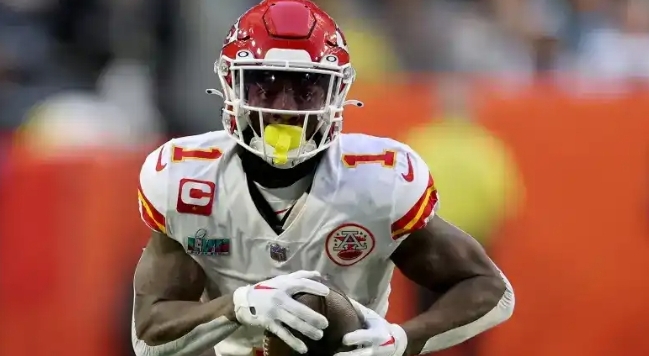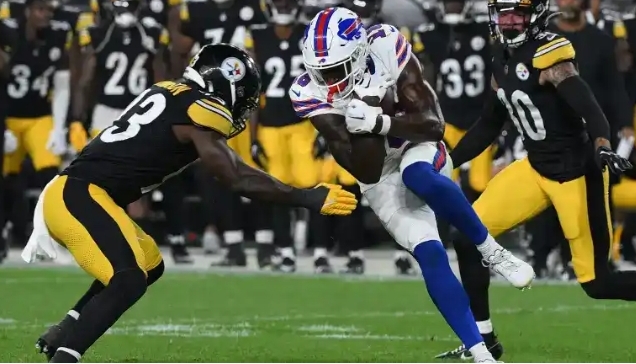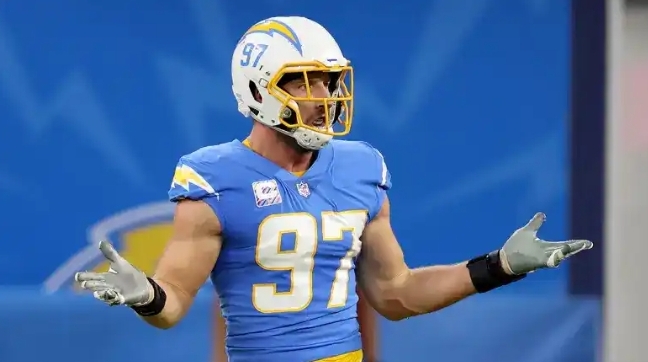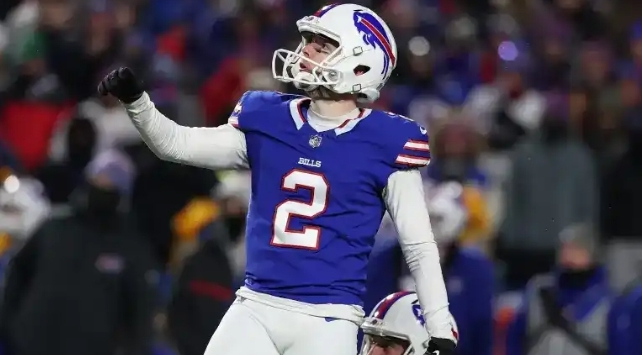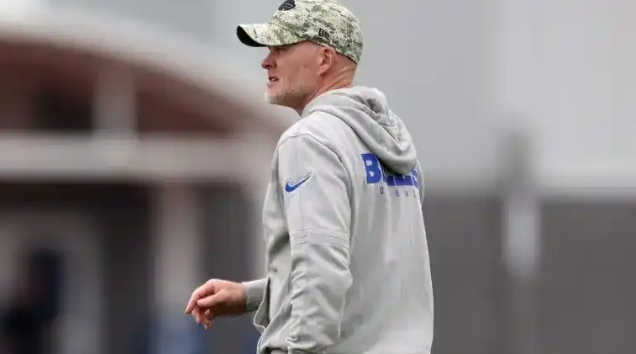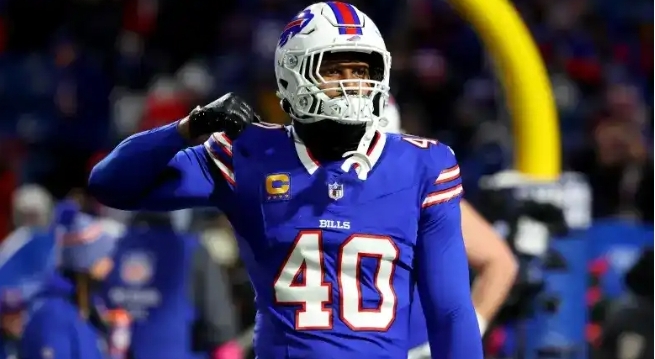Exclusive; Why extending Kirk Cousins could make sense for the Vikings — and why it might not
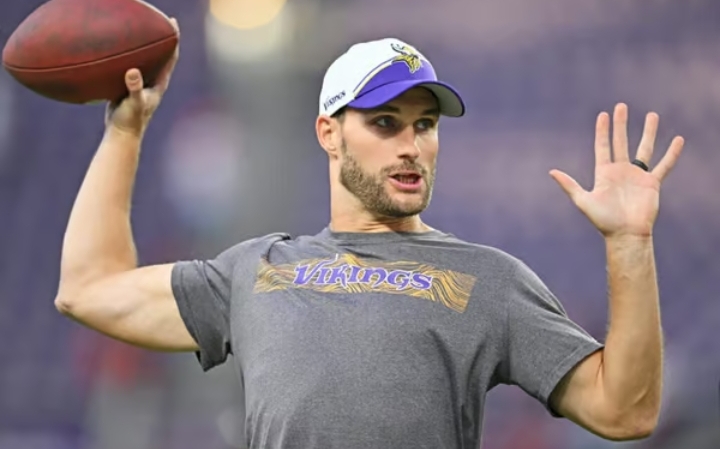
How does the return of the 36-year-old, who is recently recovering from a torn Achilles tendon, make sense given the Minnesota Vikings’ division status?
The question goes to follow up. The biggest topic of the offseason for this team is whether an extension for quarterback Kirk Cousins is warranted.
The Vikings’ two key decision makers, general manager Kwesi Adofo-Mensah and coach Kevin O’Connell, have not been shy about their preferences. Yes, they want their cousin back. On the other hand, the property has not been mentioned publicly since August. But then-chairman Mark Wilf said any decision on Cousins’ future would be left to Adofo-Mensa and O’Connell.
Contract negotiations will ultimately determine how much the Vikings want Veri back and how much he wants back. Public statements only go so far. The truth lies in the concessions negotiated or rejected individually. Because negotiations are conducted behind closed doors, both sides must assess their own circumstances. The subscriber’s question is relevant here. It only made sense to bring his cousin back if the Vikings felt that conflict was approaching. (Note: This is very different from saying that the Vikings have no choice but to bring their cousins back when they feel they are close to contention.) Do they think so? “At any other time this year, we would have said, ‘Okay, we showed it,'” Adofo-Mensah said a few weeks ago. “For the past two years actually.”
The Vikings’ offseason decisions reflect the leadership acumen of GM Kwesi Adofo-Mensah.
It’s true? Or will you stick to some impressive highs and forget about some of the lows? In 2022, Minnesota won on the road in Buffalo thanks to the Bills’ mystery play and the surprising performance of Justin Jefferson. The following week, the Dallas Cowboys entered the U.S. Bank Stadium and embarrassed the Vikings at home. Is it because Christian Darisso got hit by left tackle early in the game or does this happen all the time? The color of your purple glasses can determine the answers to these questions.
This season, the Vikings matched the San Francisco 49ers’ primetime streak. Cousins did a great job and Minnesota won without Jefferson. Would the result have been the same if Deebo Samuel had been healthy? Did 49ers quarterback Brock Purdy play late with concussion-like symptoms? Or the Vikings pushed the Detroit Lions to their limits in the months without Cousins. Would the Vikings have won if he had been healthy? Your answers to these questions may be based on objective data, deep feelings, long-held expectations, negative perceptions, or maybe a little bit of each. The opinions of Vikings decision makers could be swayed by contract status (Adofo-Mensah and O’Connell are entering their third seasons) and business priorities (owners likely want to make money).
Was it right for the Vikings to come so close to the battle? Let’s look at some relevant factors:
Field production: different indicators paint a different picture. The Vikings ranked 23rd in DVOA, a measure that takes into account the strength of the program this season, and last in the NFC North. Before Cousins left the Week 8 game against the Green Bay Packers with a torn Achilles tendon, the Vikings offense ranked eighth in pass completion percentage and the defense ranked 26th, according to TruMedia. The point differential (-17) puts the Vikings in 17th place, and rightfully so.
Young talent: If Jefferson and Darrisau sign extensions, the team will have two impressive rookie contracts in Jordan Addison and Ivan Pace Jr. a.m. Aidan Hutchinson, Jameson Williams, Jahmir Gibbs, Brian Branch and Sam LaPorte fall into that category for the Lions. The Packers have offensive linemen Quay Walker, Devonte Wyatt, Christian Watson, Romeo Doubs, Lukas Van Ness, Jayden Reed and many others on rookie contracts for the foreseeable future. The Bears boast Darnell Wright, Tyreek Stevenson, Kyler Gordon and safety Jaquan Brisker. Future salary cap: According to Over The Cap, the Vikings have about $20 million in effective cap space, which is how much cap space the team will have after signing at least 51 players and a projected rookie class. Lions and bears are expected to have more. All four NFC North teams have ample cap space for 2025, even if player additions impact flexibility.
Available draft capital: Adofo-Mensah lists draft picks in the first two rounds as a team’s most premium assets, but uses the top 100 as a benchmark. The Packers have five picks in the top 100 in 2024. That’s four lions. The Bears have three picks (including the No. 1 and No. 9 picks). The Vikings have three.
Coaching retention: Minnesota may be the only team in the division with continuity with its coordinator. The Bears fired offensive coordinator Luke Getty and hired Shane Waldro. The Packers fired defensive coordinator Joe Barry. Two Lions coordinators, Aaron Glenn and Ben Johnson, could leave for head coaching jobs. Small changes can have an impact on a team, such as moving Johnson. Throw in some extra layers, like the possibility of the Vikings losing tailback Daniel Hunter to free agency, and it will be very difficult for them to be in contention in 2024. But this uncertainty will force the Vikings to change the way they build their team ? Unless ownership reverses the course of nearly two decades, the answer is probably no.
Kirk Cousins/Vikings Quarterback Mystery Explained in 10 Questions
However, this does not answer the subscriber’s question. Bringing in Cousins instead of aggressively entering the draft or signing a short-term option would be a risk-reducing move. That doesn’t mean there aren’t risks. Risk is inherent in every decision. As the reader mentioned, Cousins is approaching 36 years old and coming back from a torn Achilles tendon.
However, production has been steady in recent years. He spent time in O’Connell’s attack. She had a relationship with Jefferson. And he’s respected in the locker room, too.
By extending Cousins, the Vikings are optimistic about the past (we were close!) and hopeful about the future (we’ll improve our defense, improve our running game, stay healthy and outscore our division rivals). Struggling without Cousins in 2024 requires equally hopeful assumptions (which QB we draft, sign or trade will happen immediately and everything else will happen well!).
The biggest difference, of course, is what the decision means for 2024 and beyond. Signing Cousins could jeopardize a franchise-defining flex prospect. If you take another route, you might end up feeling like you have to win the ball like Kirk Cousins after years of inconsistency.
